This year in the UK, around 35,000 children and young people will enter the care system. That’s 95 children every single day. Claire Musters speaks to five different families who have opened their homes and hearts to foster or adopt some of them
‘I benefited so much from being adopted, so it was always on my radar’
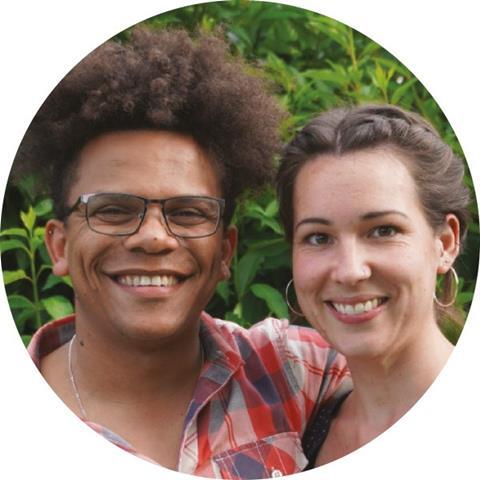
Luke Bacon was adopted by Welsh missionaries as a baby. Now an Anglican minister in Chatham, Kent, his experience inspired him and his wife, Becci, to extend their own family through adoption
I was an unexpected, unplanned baby. My biological mother had the firm conviction that she didn’t want me to be raised in a single parent family, so put me up for adoption with a Christian agency while she was pregnant.
My heritage is a mix of West African and British and one of the stipulations was that I be placed with a family who had some understanding of the African part of my identity. This coincided with a couple from South Wales, who had recently returned from two years teaching in Ghana, exploring the possibility of adoption. They picked me up from hospital when I was one week old.
As someone who has benefited so greatly from adoption, it is something that has always been on my radar, and when Becci and I got married we shared the opinion that we would love to extend our family through adoption.
We got to know our adopted daughter while she was being fostered by a family in a previous church we were part of. As various circumstances changed during the foster placement, we began to wonder whether we might be able to welcome her into our family, and so took the first step of speaking to her foster carers. It took about nine months from our initial conversation to our approval and, shortly after that, we welcomed our amazing daughter into our family.
That was just over five years ago and so far it has been an incredible adventure. Like all good adventures it has brought great challenges, but each challenge has been far outweighed by the joy of seeing our family grow in love for one another. Our youngest daughter hasn’t known anything other than having an adopted big sister and it is wonderful to watch their friendship grow as the years go by.
While adoption and fostering may not be appropriate – or even possible – for every Christian, each of us has a part to play in ensuring that local churches are positive, nurturing environments for families that are formed in various ways. As an adopted person, I rejoice that it is the image of adoption that is used to depict our inclusion into God’s family. My prayer is that many more children and young people in need of loving homes will know this same gift of ‘chosenness’ and love.
‘Adoption isn’t an easy journey, but I don’t regret our choice’
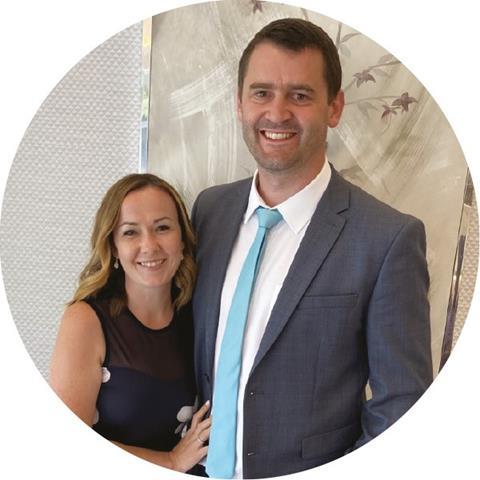
Leading a church on a housing estate in Edinburgh, Emma and Peter saw the impact of traumatic childhood experiences first-hand. Adopting two children hasn’t been easy, Emma says, but God has provided for all their needs
My husband is the pastor of a church on a housing estate in an area considered to be in the top ten per cent most deprived in Scotland. In our first few years here, I walked with women through the difficult journey of either having their children removed, or being placed on the Child Protection Register.
We began developing friendships with people who’d had traumatic experiences in childhood – one friend had been rented out to men by her mum from the age of six. Now, as an adult, she was the girlfriend of a drug dealer with one child on the Child Protection Register and a baby with foetal alcohol syndrome.
Walking with her made me realise it wasn’t enough to see the cycles of destruction, shake my head and comment on how awful it was. As a Christian, I knew that we are called to action. “I think we should start praying about whether adoption is something God wants us to do,” I told my husband over dinner one night. Thankfully, he agreed!
Adoption is God’s idea. At the centre of the Bible is the teaching that God is a loving Father and, despite us not naturally being part of his family, we can be adopted into his family with all the rights, privileges and blessings of being his sons and daughters. James 1:27 urges us to “look after orphans” (Ephesians 1:5). Obviously God places a special importance on providing for children who are without their biological parents.
I don’t have an amazing story about a momentous revelation from God that we should adopt. He used his word, his people, circumstances and a developing sense of urgency. Really it came down to: Here is a need and we can meet it.
Adoption isn’t an easy journey; in fact, at times it has been brutal. I know we all love a happy ending, but I can’t sugar-coat it. The damage isn’t undone; the memories aren’t forgotten. The trauma is still there and the diagnoses still come. We have two children with additional needs – one with some pretty complex medical problems. My life is a mix of home schooling and hospital appointments.
I have never regretted our decision to adopt. That’s not because we’re heroes, or it takes a special type of person to adopt (as we so often hear), but because our lives are in the hands of God. He not only asked us to do this but continually provides in miraculous ways for us and our children. We’re constantly blown away by his power and love for our little family.
God gives me what I don’t have – I’m not strong or patient or kind – when I’m empty (which is by breakfast most days), I can put one foot in front of the other and do the next thing faithfully because God gives me all I need.
Adoption is wonderful, messy, joyful, exhausting – and sometimes all at once! For me, it’s a constant cycle of depletion and renewal, and I’m thankful that God gives us both the motivation and the endurance for it. I’m thankful that he brought us into his family and gave us such a tangible picture of what adoption really is. He’s the ultimate adoptive parent!
‘Fostering has challenged our theology in so many ways’
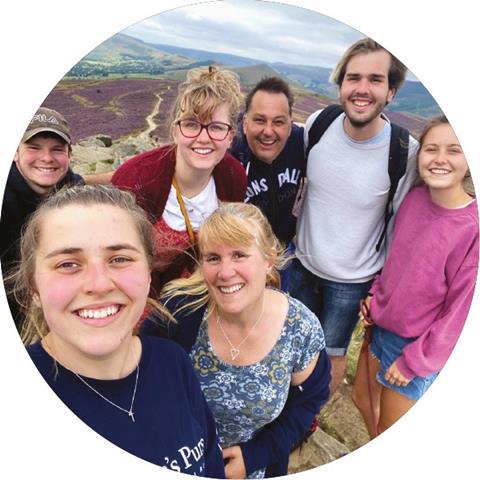
When a newborn baby placed into Mal and Chriscelle’s care was adopted by a gay couple, they had some initial concerns. But the pastors, who are based in south-west England, say fostering has opened up opportunities they couldn’t have imagined
We initially pursued adoption when our birth children were in their teens, but concluded it wasn’t the right time. Then, at the Vineyard National Leaders conference six years ago, we heard the UK needed 9,000 new foster homes. It was like a lightning bolt – we knew that we were one of those. We went home and contacted social services.
A lot of people ask if it was a more difficult process because we are Christians. We actually loved it! The biggest concern regarding our suitability was whether we would be accepting of children and non-judgemental. We subscribed to that approach (and feel we have grown in it since becoming carers); if we can show we are accepting of anyone and want to connect, we can also expect that of others.
So we’ve rather enjoyed saying to our social workers: “You are going to get to know us really well, and our journey is informed most significantly by our faith. Can we hear more of your journey, so we can be sensitive to your understanding and experience, as we explain ours?” It brings all kinds of opportunities.
We already had our long-term foster child when social services approached us and said: “We’ve got an emergency situation. Would you be up for a newborn?” We asked our kids, as it would impact us all, and they were keen. Longer term, it was hoped that she would be able to return to her birth parents or be adopted by another family where she could join some of her siblings.
When we met her new family (she got to join her siblings) at the start of the handover process, the two dads said to the social workers: “Could you give us a few minutes, please? We’d like to talk with Mal and Chriscelle.” They said to us: “We want to thank you for all you’ve done, and invite you to be a part of our family forever. Would you be her godparents?” We both burst into tears! The privilege of journeying with that household over the three years since has been incredible.
The process has challenged our theology and missiology in many ways. We’ve found this couple so easy to relate to and love; we have so much to affirm of them, such as their commitment to the covenant of marriage, being open to being spiritual with us and asking us to pray – more than many in our church do.
We just wanted to be real and vulnerable with them, and hoped to positively respond to some of their past experiences of being judged. Romans 2:4 says it’s the revelation of the kindness of God that leads to our responding to him, and it’s his kindness we hope to reflect. Initially, we were concerned that ‘our little girl’ wouldn’t have a significant female presence in her formative years, but getting to know these amazingly committed dads, and their wider relational support network, reassured us.
We believe the UK Church is uniquely placed to respond to the desperate need in our nation for foster carers. If every active church encouraged one household to foster or adopt, and then wrapped around them, providing the practical help that is so needed, the children who need families right now would find their homes.
‘Short-term care is an emotional rollercoaster, but it’s something God has called us into’
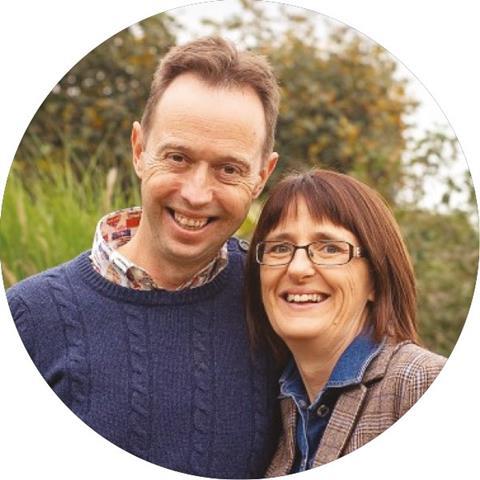
When Ruth and Phil Clarke found they were unable to have children of their own, the couple from Northern Ireland decided to explore Fostering to Adopt. Now adoptive parents to two children, they share the joys and challenges of short-term care
Growing a family in our home was always a central plan within our marriage. However, when birth children did not happen for us, we felt a strong call to adoption. After some research we were drawn to concurrent care, a form of Fostering to Adopt.
We decided to foster a young child while work was carried out with their birth family that might allow a rehabilitation. If that were not possible, we would adopt the child.
Why did we put ourselves in the situation of loving a child deeply but potentially losing them? Simply because God had called us to. Our faith was the driving force behind our decision. Although concurrent care can be an emotional rollercoaster, we felt it was something God was inviting us into. We trusted that if he was bringing us in, then he would not leave us in the middle of it.
We went on to have a baby girl and, later, a boy placed with us. Neither remained permanently in our home. God’s plan was for them to be reunited with their birth parents. This was incredibly painful, we loved both babies unconditionally, as if they had been born to us. Isn’t that what every child deserves? We clung to that initial calling and trusted God would carry us through.
During those days God helped us to experience many emotions besides the pain. We felt pride in the walls that the birth parents scaled to change their broken lives; joy in seeing a new family emerge and grow stronger, and peace in the decisions that had been made. We had grown to love these babies’ parents like they were our children, too. God gave us the strength to celebrate with them.
After our experiences, God led us to a brother and sister aged two and three. Their birth mum had too much stacked against her and could not make the necessary changes required to keep her children, so we were to become their forever mummy and daddy. However, we wanted to show God’s unconditional love to their mum, also. Our children have been able to maintain a direct relationship with her, which benefits us all.
We now do short-term fostering for babies from birth to two; fostering has become the calling of our whole family, including our extended family and friends. We are supported through the highs and lows by our friends and church community. We have been surrounded by prayer and practical support. We have learned that we are never alone. God has always provided the right support.
We describe our family tree as a hedge, with the roots reaching out in many directions. Each child that has been in our home – and their family – remain a part of us, whether they return home or move onto their own forever family through adoption.
We get so much joy from seeing these new families emerge from the brokenness. Each day, as we watch our children and foster children thrive and achieve developmental milestones, we give thanks to God for the privilege of being called into this role.
‘Being a single adoptive mum is simultaneously joyous and exhausting’
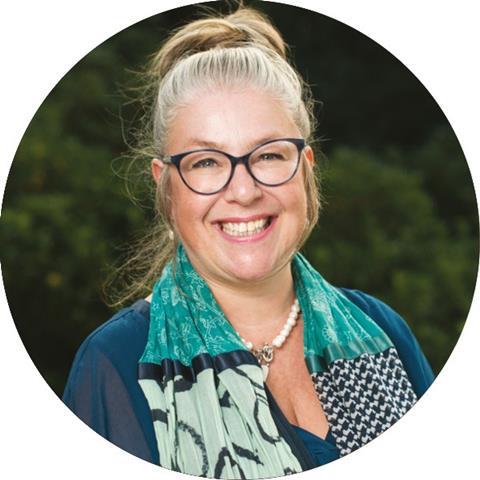
Tania Bright is the chief executive of Home for Good, a Christian charity committed to finding a home for every child who needs one in the UK. As the solo mum of two adopted boys with additional needs, she says she couldn’t do it without the support of her church community
I am an adoptive mum of two boys with additional needs, who first came to me through fostering. Being a mum to them is simultaneously wonderful, exhausting, joyous and demanding. Becoming a parent has challenged me in every single possible way, and yet filled my heart with more love than I could have ever imagined.
Every child carries with them the legacy of their early life; my boys are no exception. While they came to me very young, their experiences in utero continue to impact them; it will be something they navigate throughout their lives.
As their mum, part of my role is to be their champion, providing all I can to enable them to thrive. Sometimes this looks like advocating for them to access the right support, with lots of time and energy spent in meetings at school and with other professionals.
Sometimes it is finding the right special educational needs tutors or therapists, or seeking out new opportunities and experiences for them, such as gymnastics, taekwondo or karate. Sometimes it means spending an inordinate amount of time at the skate park, because they need to be exerting probably twice the amount of energy as neurotypical children.
I also stand with my boys as they navigate their complex stories, supporting them to process pain and loss when it arises. It can be tricky to know what to share with them, when and how. We must not shy away from the difficult parts, because they need to be able to work through them in a safe and loving environment.
Stability and consistency are vital for children who have experienced early trauma; I want my boys to find that in me. We tell one another we love each other probably 20 times a day. My hope is that they always know that they are loved.
I couldn’t navigate my busy life and be there for my boys without the support of my wider church family and friends, who are there to celebrate the highs and pick us up during the lows. They show us fierce commitment and love, and for that I am so grateful. As an adoptive parent and a solo parent, it is vital to have a strong network of support, and this is true for every family who cares for vulnerable children and young people.
There are more than 100,000 children in the UK currently needing to be looked after away from home. Each one carries a level of trauma and loss from their early experiences, and this will be outworked throughout their lifetime.
There are thousands of foster and adoptive families like mine, in every part of the country, deeply loving the children in their care. But more families are urgently needed to ensure that every child and young person has the right home, in the right place and at the right time.
Home for Good exists to find that home through fostering, adoption and supported lodgings and we believe the Church has a crucial role to play. Imagine the transformational difference we could make if even more individuals and families in our congregations opened their homes to children and young people in care.





































